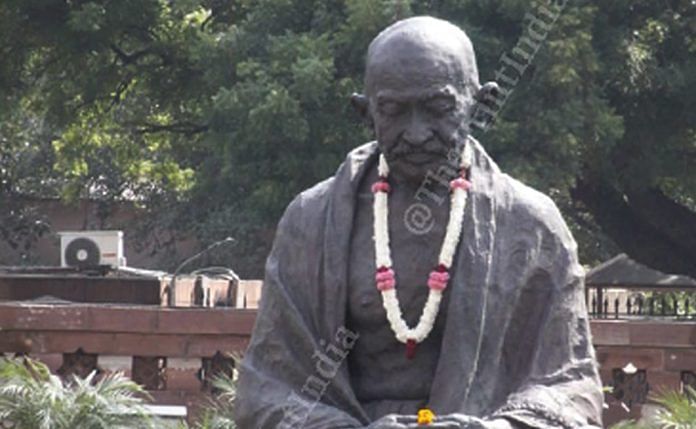Criticism is not sedition
Ajit Prakash Shah | Former Delhi High Court chief justice and chairman of the 20th Law Commission of India
The Hindu
The FIR against 49 signatories of an open letter to Prime Minister Narendra Modi that addressed concerns about mob lynching is “shocking, disappointing, and completely disregards the true meaning of the law”, writes Shah.
The signatories did what citizens of a democracy should do — “raise questions, debate, disagree, and challenge the powers that be on issues that face the nation”. The Bihar court’s decision calls for an urgent debate on the need to repeal the sedition law, he writes.
This law was abused by the British colonial government to convict Indian freedom fighters. Today, Indians face the same from their very own government, he writes. Ironically, the court’s decision came on the birth anniversary of Mahatma Gandhi — a major advocate for the right to dissent.
The threat of sedition leads to self-censorship and produces a “chilling effect on free speech”. Like the UK, India should also repeal this law. Governments will not give up their power, hence it is time for people and civil society groups to “challenge the law directly”, concludes Shah.
Language: What India got right, what Sri Lanka and Pakistan got wrong
Neelanjan Sircar | Assistant professor, Ashoka University, and visiting senior fellow, Centre for Policy Research
Hindustan Times
As Home Minister Amit Shah called for Hindi to be India’s national language, it should be noted how Pakistan and Sri Lanka’s imposition of a single-language resulted in civil wars, writes Sircar.
During India’s independence movement, nationalism theorists advocated a national language, as it originates from a “modernist conception — not a majoritarian one”. Nationalism theorist Ernest Gellner believed a single national language was essential to modernisation, as a common language would “engender standardisation in education, fostering social mobility” and enhanced communication.
This didn’t work in Sri Lanka. Once Sinhala was declared as the official language due to majoritarian pressures, the otherwise privileged Tamil speaking community in Sri Lanka was disenfranchised. This eventually led to a civil war. When one group is removed from power, imposing a national language can cause “conflict and national disintegration”.
In India’s case too, “Hindi-speaking regions are significantly poorer than non-Hindi-speaking regions” due to “complicated histories of caste, religion, land tenure, and colonialism”, he writes. Imposing Hindi as a national language could “disenfranchise the more well-off non-Hindi-speaking population in favour of a population that speaks Hindi from birth”, adds Sircar.
Gandhi for the future
Sudarshan Iyengar | Former vice chancellor, Gujarat Vidyapith, Ahmedabad
The Indian Express
Iyengar writes about why he “needs Gandhi today for three reasons”. First, the educationist needs him for “self-development”. Gandhi was “eternally vigilant” about himself, constantly correcting, developing and honing his inner self. A strong advocate of “individual liberty”, he was different from philosophers Mill and Spencer as his concept of liberty for vyakti (individual) was derived from individual responsibility for self-regulation.
Iyengar’s second reason on needing Gandhi is to help achieve peace among “warring sections of humanity”. Caste, race and religion are a “political facade”, and when Gandhi sensed this in South Africa, he came up with the idea of ahimsa (non-violence).
Gandhi’s vision of a non-violent society is the third factor for Iyengar, who believes this idea would “save humanity from ecological disaster”. In his time, Gandhi had questioned whether modern civilisation meant big houses, cars, ample clothes and luxurious indulgence. Back in 1930, he wrote that if India wanted to imitate the British way of life, resources worth three earths would be required.
Gandhi offered to us a “wise and compassionate vision of harmony between vyakti, samashti (humanity) and prakruti (nature)”, concludes Iyengar.
Financial sector stability & our cook Lilu-tai
Tamal Bandopadhyay | Author and senior adviser, Jana Small Finance Bank
Business Standard
Bandopadhyay uses an anecdote about his cool Lilu-Tai who asked him if her money was safe in the bank, to highlight how people have lost trust in the banking system in the wake of the PMC Bank fraud. He warns that the fraud alone “cannot create systemic instability” but “the triumvirate of banks/UCBs (urban cooperative banks), shadow banks and realty firms” can wreak havoc in the financial sector.
He traces the PMC Bank crisis which “broke every possible banking rule and ran as a bank of a bankrupt realtor for over a decade”. The bank created “21,049 dummy loan accounts” to cover its exposure in HDIL Ltd, provided false surveillance to regulators and declared bad assets good.
Between July 2018 and June 2019, the licences of four UCBs got cancelled, a few were merged and 47 of them had negative net worth. With many developers unable to repay debts due to the sinking real estate sector, many such banks “will go belly up”, leaving depositors in the lurch, he writes.
Bandopadhyay recommends letting some UCBs become “small finance banks and change the regulations for the rest, capping the amount of deposits and advances to avoid misuse by relators and politicians”.



